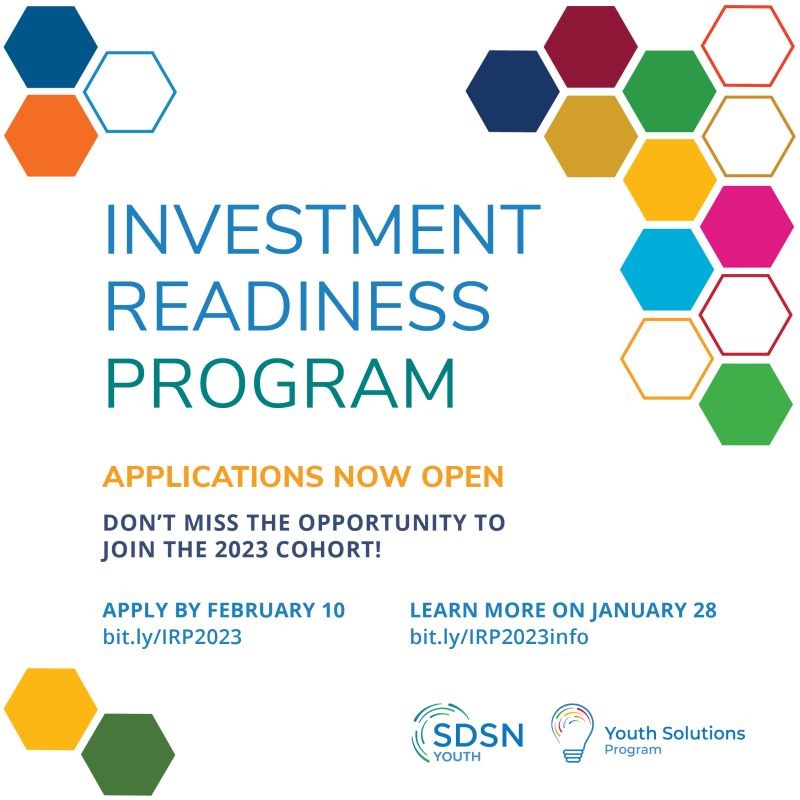Announcements
Call for applications: InnovationClub opportunity - UN Sustainable Development Solutions Network Youth Investment Readiness Programme
Young social media entrepreneurs Investment Readiness Opportunity
The Investment Readiness Programme (IRP) is a 16-week accelerator programme that prepares young social entrepreneurs between the ages of 18 to 35 from across the globe for investment readiness through one-on-one mentorship, curated training, peer-to-peer networking and other opportunities to foster youth innovation.
-
Application link: https://docs.google.com/forms/d/e/1FAIpQLSdiepAny9VCRTh-dxvPcpRQTw25-cwx72SePj53_zo2giPg2g/viewform
-
Click here for the communication kit.
Publish date: 2023/01/17
